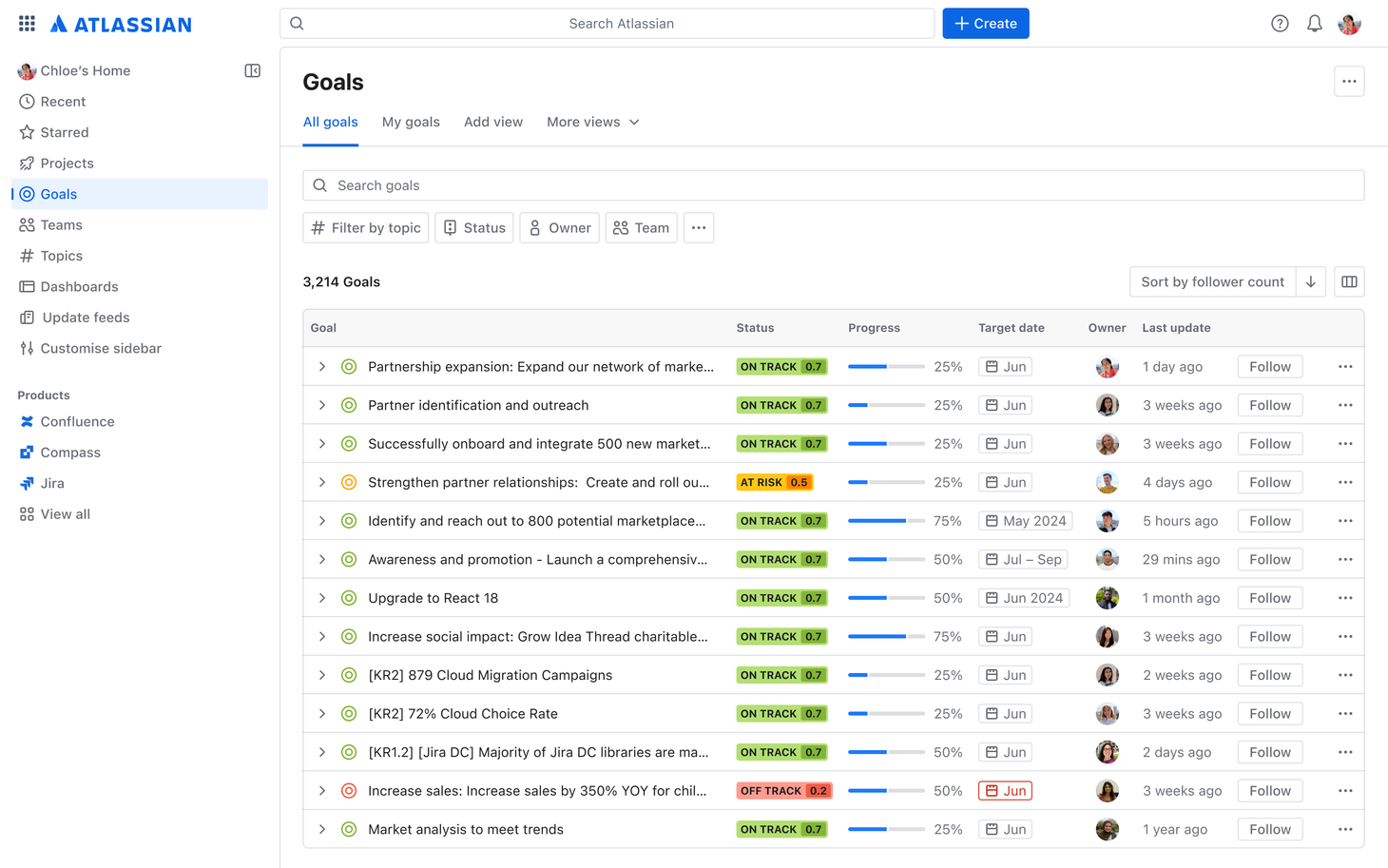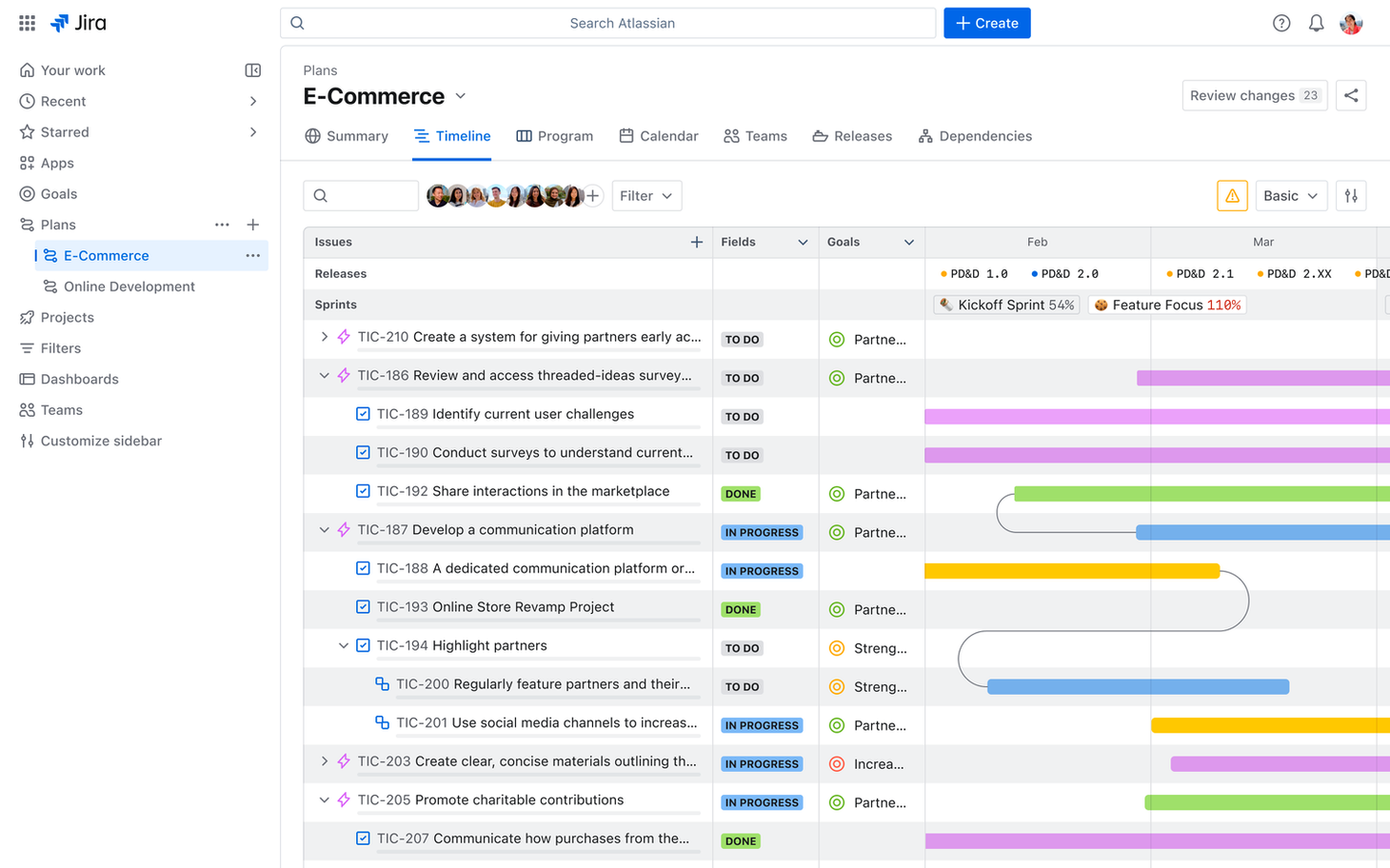Atlassian combines Jira Software and Work Management tools
At its Team ’24 event in Las Vegas, Atlassian today announced that it is combining Jira Software with Jira Service Management into a single product under the ‘Jira’ brand.
The origins of Jira, Atlassian’s flagship project management tool, are in software development and issue tracking for developers, but throughout the past few years, the company started to launch Jira versions for other teams as well. These included Jira Work Management for business teams like marketing, sales and human resources, which launched in 2021 and replaced a previous product called Jira Core.
“We believe great teams are built on a foundation of shared goals, coordinated work, and free-flowing information across functions,” writes Dave Meyer, the head of product for Jira, in today’s announcement. “That’s why the latest evolution of Jira offers a shared place for every team to align on goals and priorities, track and collaborate on work, and get the insights they need to build something incredible, together. We’ve taken the best of Jira Work Management and Jira Software to make a single project management tool ready to help any team go from good to great.”
The idea here is to offer a cross-functional tool that allows different teams inside a company to more easily collaborate and track their work. While there were already connections between Jira Software and Jira Work Management (plus Work Management is already included in every Jira subscription for free), Atlassian says that this combined version will reduce friction and help different teams align on common goals, no matter whether they are engineers, marketers or designers, for example.
It’s worth noting that Jira Service Management for IT teams is not affected by this change.
More AI in Jira
With this change, Atlassian is also bringing a number of new features to Jira to enable this kind of collaboration. Unsurprisingly, these include several new AI-based tools.
Maybe the most interesting of these is the new AI work breakdown (coming to Jira and Jira Premium users soon), which can help teams break down their epics into individual issues (or issues into sub-tasks) automatically — with the ability to edit them manually, too, of course. That takes away some of the grunt project management work and will free up project managers to focus on the bigger-picture items on their to-do lists.
Soon, Jira will also be able to sum up issue comments automatically. This capability will also come to Confluence, Atlassian’s wiki-like workspace tool.
Currently, to become a Jira power user, you’ll need to learn the Jira Query Language (JQL) to search for issues on the platform. Now, thanks to the power of large language models, users will be able to use natural language to create these JQL queries.
And for those occasions where you don’t know exactly what to write, Atlassian is also introducing a new generative AI writing tool to Jira that can create, summarize and improve descriptions and comments. These same capabilities are also coming to Atlassian’s Trello and Bitbucket, with Jira Product Discovery and Confluence following soon.
Setting Goals
Since the entire purpose of combining these two tools is to make collaboration easier, Jira is also getting a few new features that help teams align on their overall goals. That feature, imaginatively dubbed ‘Goals,’ will roll out in the coming month and aims to help users to “create goals in Jira’s list and issue views to visualize how each task maps to a higher objective.” There will also be a directory of goals and goal progress charts “where goals can be viewed in the context of your projects.”
New views
Jira is also introducing a few new ways to work with issues and visualize them. You can now see every project in a spreadsheet-like list view, for example, and make in-line edits. Atlassian notes that this will also make bulk edits easier.
To better track complex projects, Jira Premium and Enterprise users now get access to the new ‘Plans’ feature, which allows users to track issues from different boards and projects in a single view.
“Now everyone – from leaders to program managers to team members – can estimate release dates for cross-team projects, answer staffing and resource questions, or map out yearly goals, all in a single view,” Meyer explains in today’s announcement.
Speaking of time, there is now also a new calendar view for tracking business projects with issues organized by due date. This, Meyer notes, will help business teams more easily align their work in sync with upcoming software releases. The full launch of this calendar feature is still a few months out, though.





